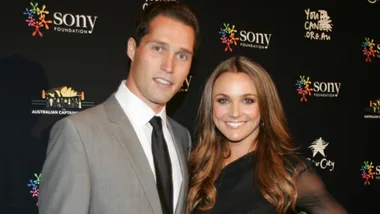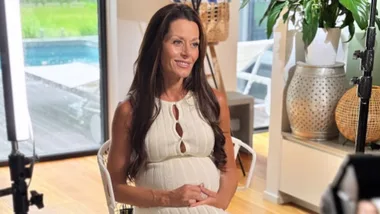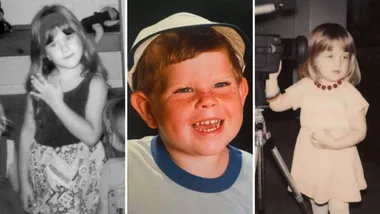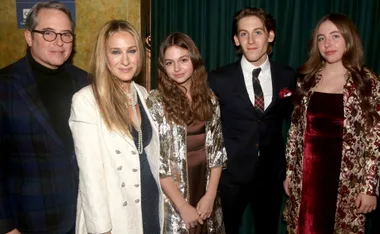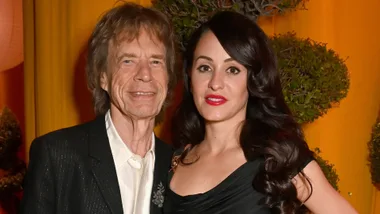When she became pregnant at 40, Georgia Strickland couldn’t believe her good fortune. Yet, the joy of parenthood was not to be.
I didn’t choose to have a baby so late; on the contrary, I had yearned for children for many years, but circumstances — let’s face it, I chose the wrong guys — had always gone against me.
I fell pregnant at 40 and though surprised, I was quietly ecstatic. My pregnancy proceeded in a textbook way and my new partner Ray and I began thinking of the baby as our little miracle.
Choosing a name was easy. We both loved Zoe; of Greek origins, it meant “life”. Over the next five months, we talked endlessly about Zoe, covering everything from who was going to get up in the middle of the night to what was a suitable age to teach her to snowboard (he thought five; I said, “No way”).
Related: Mother’s tribute to baby born without eyes
At my 38-week appointment, the doctor said everything was going “swimmingly”. She asked casually about movement and I said I felt a bit, but not a lot. She explained that, because my placenta was in the front, the movement would feel muted.
We were happy as we left the hospital that Tuesday, if a little nervous about how it would really be when Zoe arrived.
On the Friday night, we went to the footy with friends. I started to experience more pains and fleetingly thought that Zoe was moving a bit less, but told myself she had surely moved and I just hadn’t noticed.
I had also heard that babies slow down close to their due date, so told myself not to worry. I regret that decision to this day.
By Saturday morning, the pains had increased, so I took a bath. Ray piled bubbles on top of my head and stomach and took some silly photos. I still can’t bear to delete them from my iPhone; I look deliriously happy.
Ray commented at the time that my tummy looked smaller, and says now that he was a little bit worried. We rang the hospital and decided to go in for a check-up.
We didn’t rush, taking our time to make up the cot and install the baby capsule in the car. We took my hospital bags, just in case.
The midwife listened for a heartbeat, but said there was nothing. Ray collapsed loudly into a chair, startling us all. I just thought she didn’t know what she was doing.
A doctor came in and told me that he couldn’t find a heartbeat, but not to panic just yet. I began to feel sick and clung to Ray’s hand.
A second and third doctor arrived to view the ultrasound, the third saying, in a very calm voice, “I’m sorry to tell you, but your baby has passed away”.
The medical staff in the room all just stared at me. I felt like they expected me to say something, but all I could do was shake and say, “Oh, my God, what have I done, what have I done?”
They quickly said it wasn’t anything I’d done, that it wasn’t my fault.
I finally managed to ask, “What happens now?” At this point, I was told the best and safest thing for me was to go through labour.
Zoe was born, still, at 5.10am on Sunday, June 5, 2011. The midwife told me not to look until she was wrapped up.
I thought it would be too much to hold my lifeless baby Zoe, but I did. I just kept saying to her, “I’m sorry, I’m so sorry.” I desperately wanted her to open her eyes. I had an overwhelming feeling of love, together with more sadness than I’ve ever imagined.
Sunday passed slowly and horribly. The hospital staff took photographs of Zoe, which at the time seemed macabre, but which I now keep with other precious items, as evidence of her existence.
Related: My battle with postnatal depression
My parents came and met Zoe; it’s the first time I’ve seen my dad cry.
I spent most of the day asking myself what I did that made her not want to come into this world. Did I not love her enough? Ray and I both say we would have died for her. I guess that’s how all parents feel.
For more information about stillbirths visit the Stillbirth Foundation.
Read more of this story in the June issue of The Australian Women’s Weekly.
Your say: Have you experienced a stillbirth? Share your story with us below.

Video: Surviving miscarriage and stillbirth

